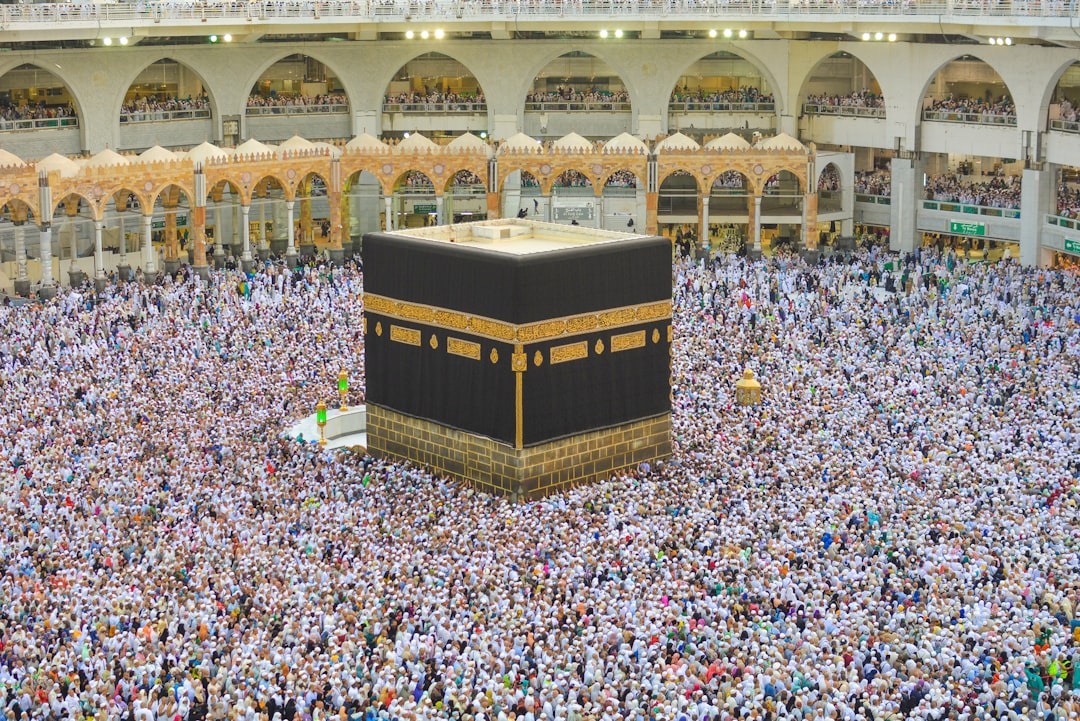As salaam Alaykum, Ikhwah!
Trust you’re doing well. I’m doing great too, AlhamduliLlah.
Welcome to another episode of Aleem’s Compendium.
Good health is one of the most expensive blessings Allah has bestowed upon us. If you have it, make good use of it.
I have a thought-provoking message for you this week. I hope it finds you in a good state and pushes you to instant action. Remember, the fruit of knowledge is to act upon it.
So, let’s dive in.
When Eeman Wavers
When Allah blessed you with the understanding of this deen and guided you to the light of Sunnah, your eeman was high. Acts of worship felt easy, and you upheld them effortlessly.
But then, life happened. Challenges arose, and out of negligence, your zeal diminished. You started losing your grip. Your eeman dipped below the gauge, and fear crept in—what if my time is up? What if I die in this state?
This is natural. Eeman increases and decreases.
But what you must not allow is becoming an evil man. Yes, an evil man.
There are voluntary acts of worship that should never slip away, no matter what life throws at you. They keep your eeman alive and often guide you back on track. Neglecting them might lead to spiritual decay, pulling you away from the rank of the excellent ones.
Let me remind you of these two contrasting examples. May Allah grant us steadfastness, Aameen.
The Excellent Man
Salim bin 'Abdullah bin 'Umar bin Al-Khattab (رضي الله عنهم) reported that the Messenger of Allah (ﷺ) said:
"What an excellent man 'Abdullah is! If only he could perform optional prayers at night."
Salim added that after this remark, his father, ‘Abdullah, barely slept at night.
(Al-Bukhari & Muslim)
This hadith highlights the virtue of night prayer (Qiyaam al-Layl). It is a defining trait of those who seek excellence in both worlds.
The Evil Man
It is narrated that Imam Ahmad (رحمه الله) said:
"The one who abandons Sunan Rawaatib (the 12 voluntary prayers) is an evil man."
(Al-Insaaf)
This statement underscores the importance of consistently observing the Sunan prayers, without laziness or neglect.
When was the last time you upheld these Sunan? I hope you are not an evil man.
What Are Sunnah Rawaatib?
Sunnah Rawaatib are 12 daily voluntary rak‘ahs closely tied to the five obligatory prayers.
4 before Dhuhr (in sets of 2) and 2 after
2 after Maghrib
2 after ‘Ishaa
2 before Fajr
The Prophet ﷺ said:
“Whoever prays twelve rak‘ahs in a day and night, a house will be built for him in Paradise.”
(Saheeh Sunan at-Tirmidhi, classified as Saheeh by Shaykh al-Albaani)
Additionally, praying 4 after Dhuhr instead of 2 is highly recommended, as the Prophet ﷺ said:
"Whoever consistently prays four before Dhuhr and four after, Allah will forbid him from Hellfire."
(An-Nasa’i 1817, At-Tirmidhi 428)
Other Highly Recommended Prayers
Apart from Rawaatib, these additional Sunnah prayers bring immense rewards:
4 before ‘Asr
2 before Maghrib
2 before ‘Ishaa
Duha (morning prayer)
Witr (night prayer)
These may not be Rawaatib, but their rewards are too great to be ignored.
PS: Guard your Sunnah Rawaatib diligently; they are a safeguard for your faith. A house in Jannah is promised to those who uphold it consistently. If you’ve been slacking, now is the time to restart—before it’s too late.
Are you among the excellent men, or have you allowed negligence to make you an evil one?
May Allah grant us steadfastness. Aameen.
A Glimpse Beyond
Being an intentional parent is not sufficient; always keep your children and their descendants in your prayers. Follow the example of your father, Ibraheem Alayhi Salaam. He prayed for himself and his descendants, and Allah responded to his prayer.
14:40
رَبِّ ٱجْعَلْنِى مُقِيمَ ٱلصَّلَوٰةِ وَمِن ذُرِّيَّتِى ۚ رَبَّنَا وَتَقَبَّلْ دُعَآءِ
My Lord! Make me and those ˹believers˺ of my descendants keep up prayer. Our Lord! Accept my prayers
Abdulaeem Akinyoola ✍️




Jazakumullahu khayron for this invaluable reminder, sir
Great read!